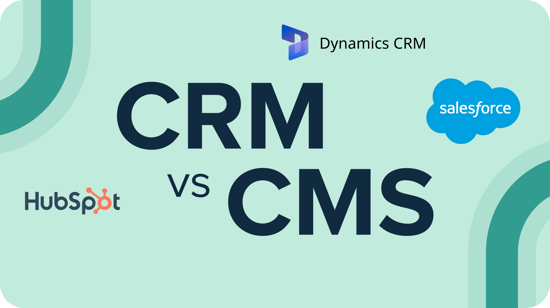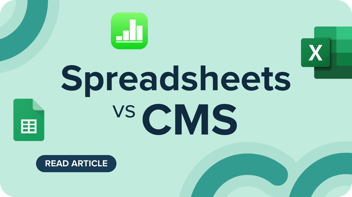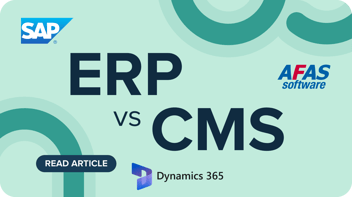The 5 differences between CRM & specialised contract management software
The use of a Customer Relationship Management (CRM) software, is actually quite similar to how ERPs are leveraged to support the contract processes in an organization. Just as with ERPs, a CRM serves distinct purposes within business operations, which makes it a rather generic software. However, for signing, managing, and following up on contracts, a more specialized approach to this specific type of documents is needed. In this blogpost, you will learn what the differences are between CRM software and Contract Management Software (CMS) in terms of keeping track of your contracts.

1. Two tools, two business objectives
Contract management software is specifically designed to handle the entire lifecycle of contracts—from creation and negotiation to signing and renewal. It offers features tailored to address the unique challenges and requirements of managing contracts efficiently.
CRM software, on the other hand, primarily focuses on managing customer relationships, sales processes, and marketing activities. While it may include basic contract tracking features, it lacks the specialized tools required for comprehensive contract management.
With features like automated approval workflows, e-signatures, and version control, contract management software achieves to streamline the entire contract lifecycle. This ensures a smooth and organized process, reducing the risk of errors and delays.
CRM systems may incorporate basic contract tracking capabilities, but they are not inherently equipped to handle the complexity of contract negotiations, revisions, and compliance monitoring.
Contracts are a very complex type of document. As they are the most important documents within an organization, you want them to be centralized in a secure vault. Contract management software typically includes a centralized repository that facilitates easy access, collaboration, and tracking of contract changes, while at the same time providing adequate reading rights to a contract’s stakeholders.
Of course CRM systems allow document attachment, and most of them also have some form of version control, yet, they often lack the depth of features required for robust document management, version tracking with annotations, and comprehensive audit trails.
Contract management software like Contractify is built around contracts, rather than around companies and contacts. It follows the route the contract follows throughout an organization and prioritizes legal compliance. With tools for tracking key contract milestones, managing obligations, and ensuring adherence to regulatory requirements, legal compliance is facilitated.
The design of CRM systems is focussed on sales and marketing activities, and their contract features may not meet the stringent legal and compliance needs often associated with contract management.
What truly makes Contract Management Software stand out from other technology, is the way it will automatically alert the right person of any important contract milestones. By providing automated renewal alerts and expiry notifications, it helps reduce the risk of overlooking critical deadlines.
As CRM systems do not recognize different contract milestones, they lack advanced features for proactive contract management, potentially leading to missed renewal dates or contract expirations.
In summary, while CRM systems excel in managing customer relationships and sales processes, contract management software offers specialized features essential for handling contracts throughout their lifecycle. The latter provides a dedicated and comprehensive solution tailored to the intricacies of contract management, making it the preferred choice for signing, managing, and following up on contracts.
Need more info on how to optimize your contract management?
Fill in your details to read the complete expert paper on building the right Legal Tech Stack




